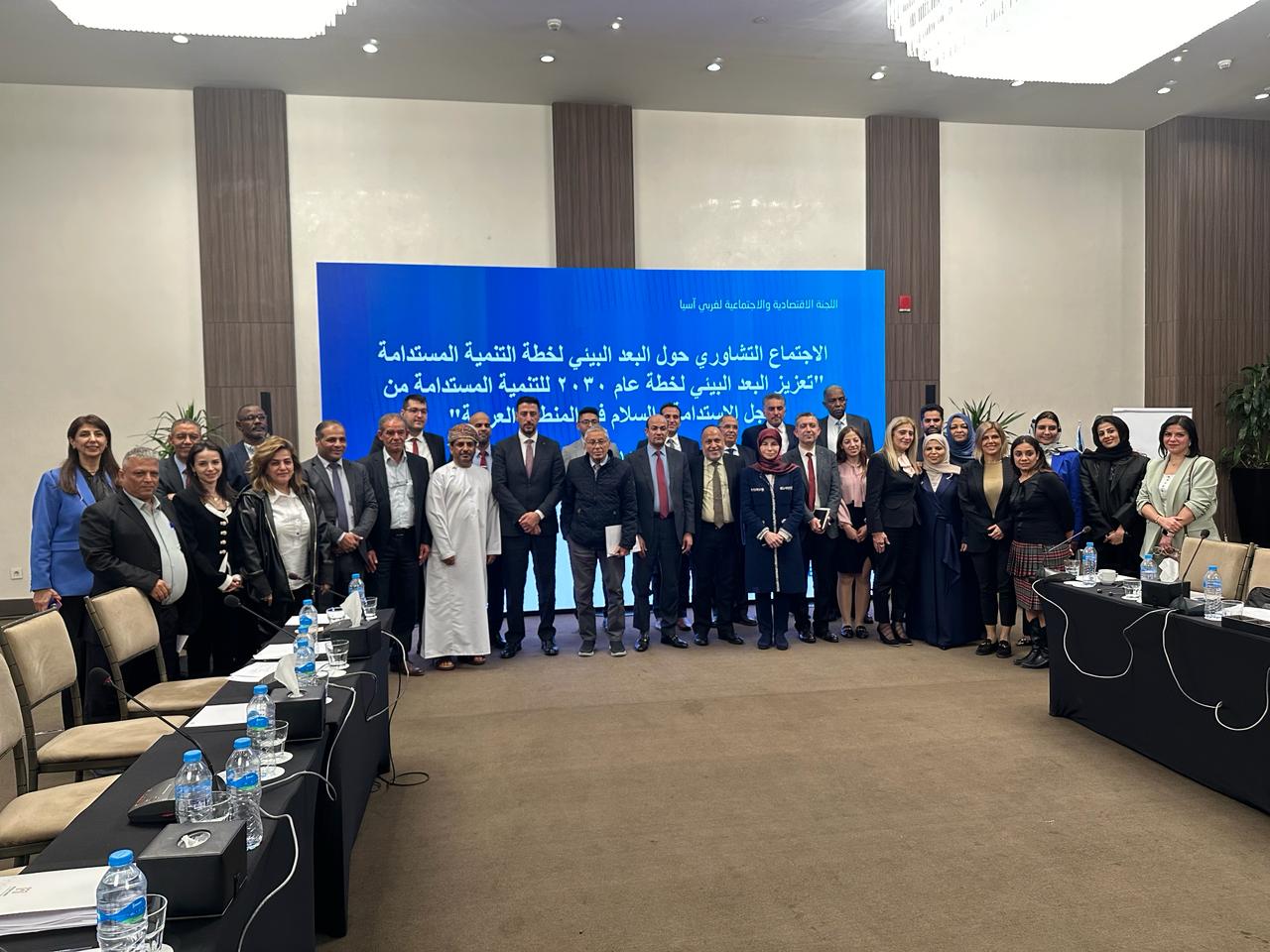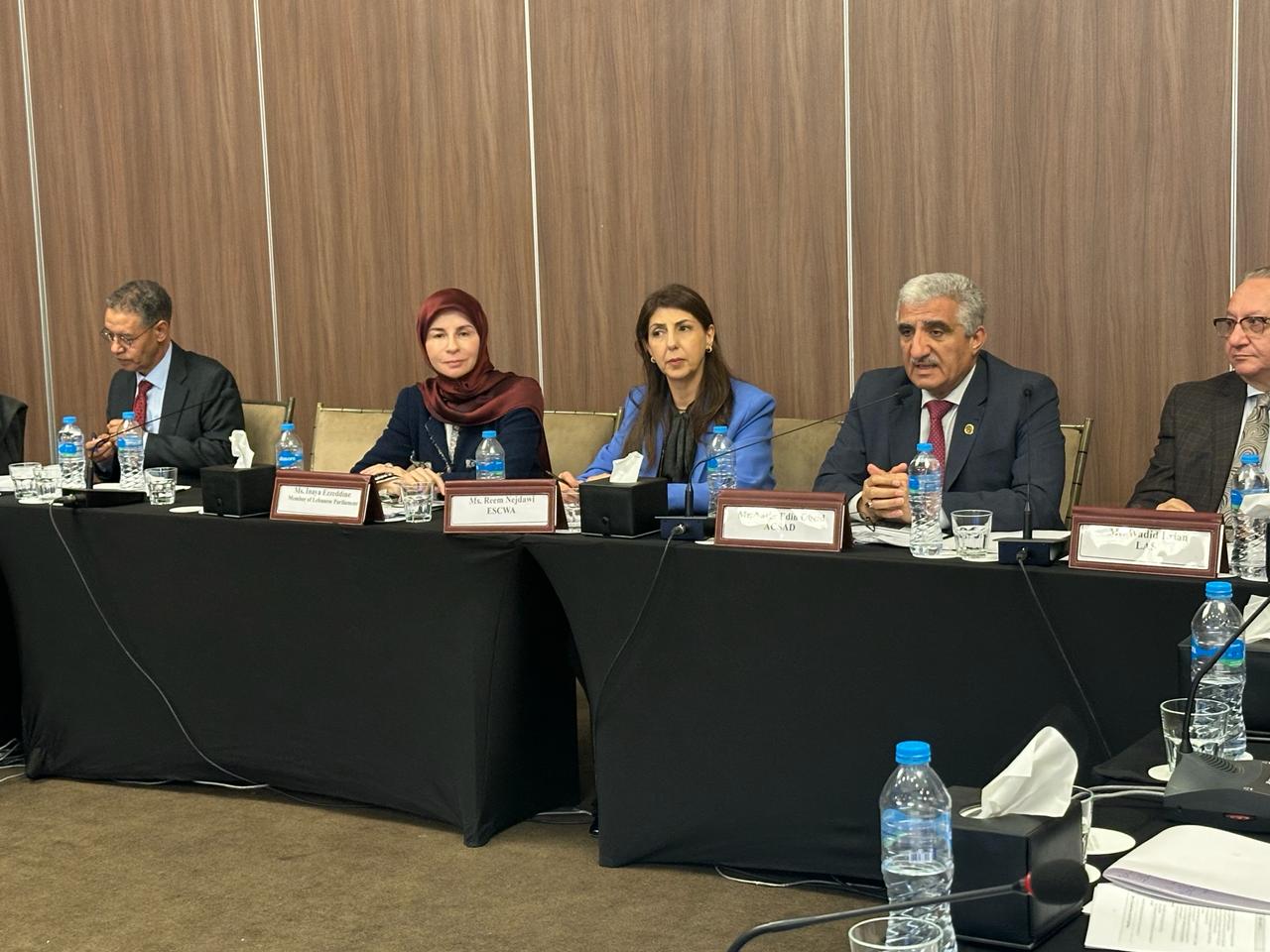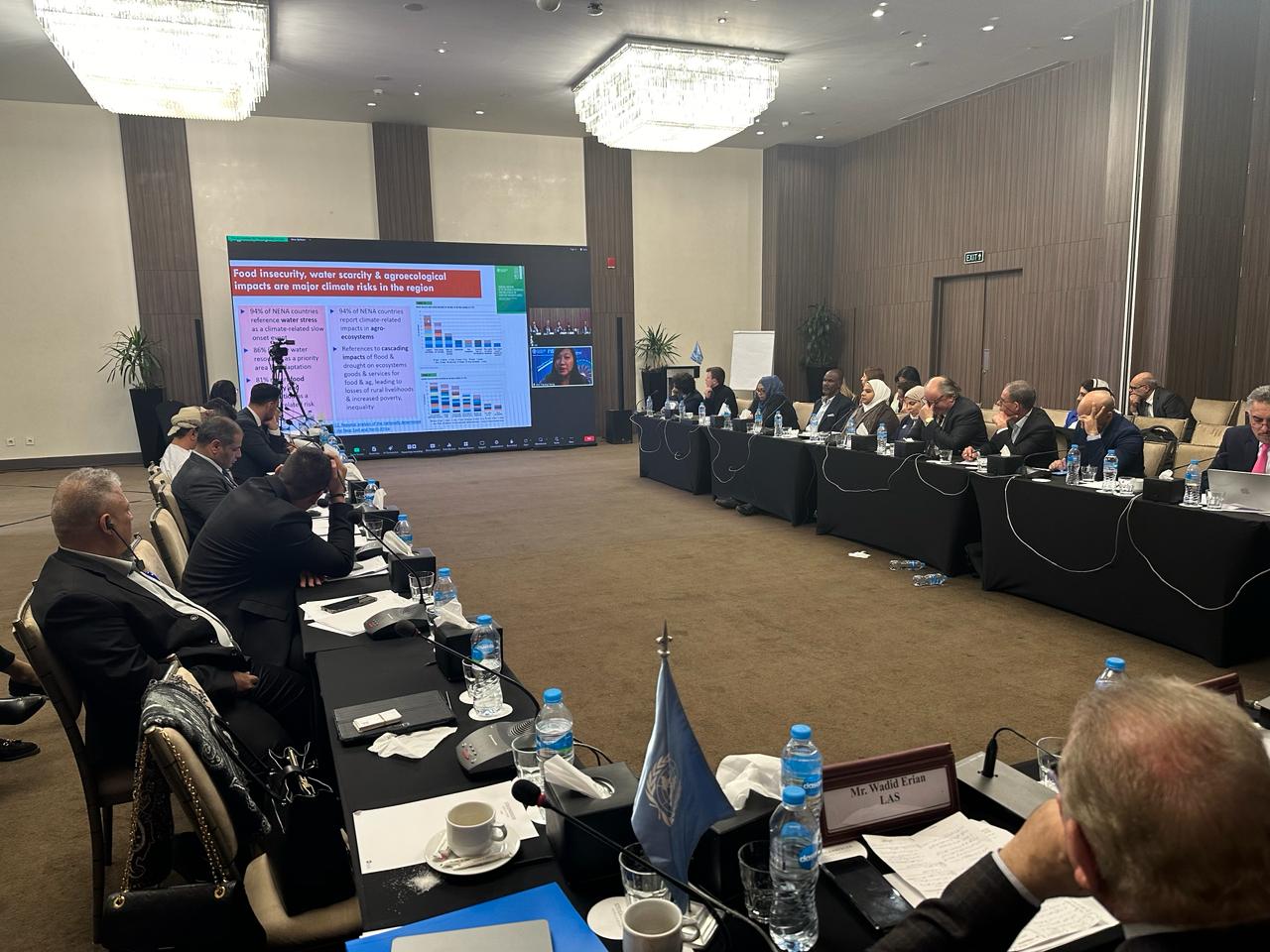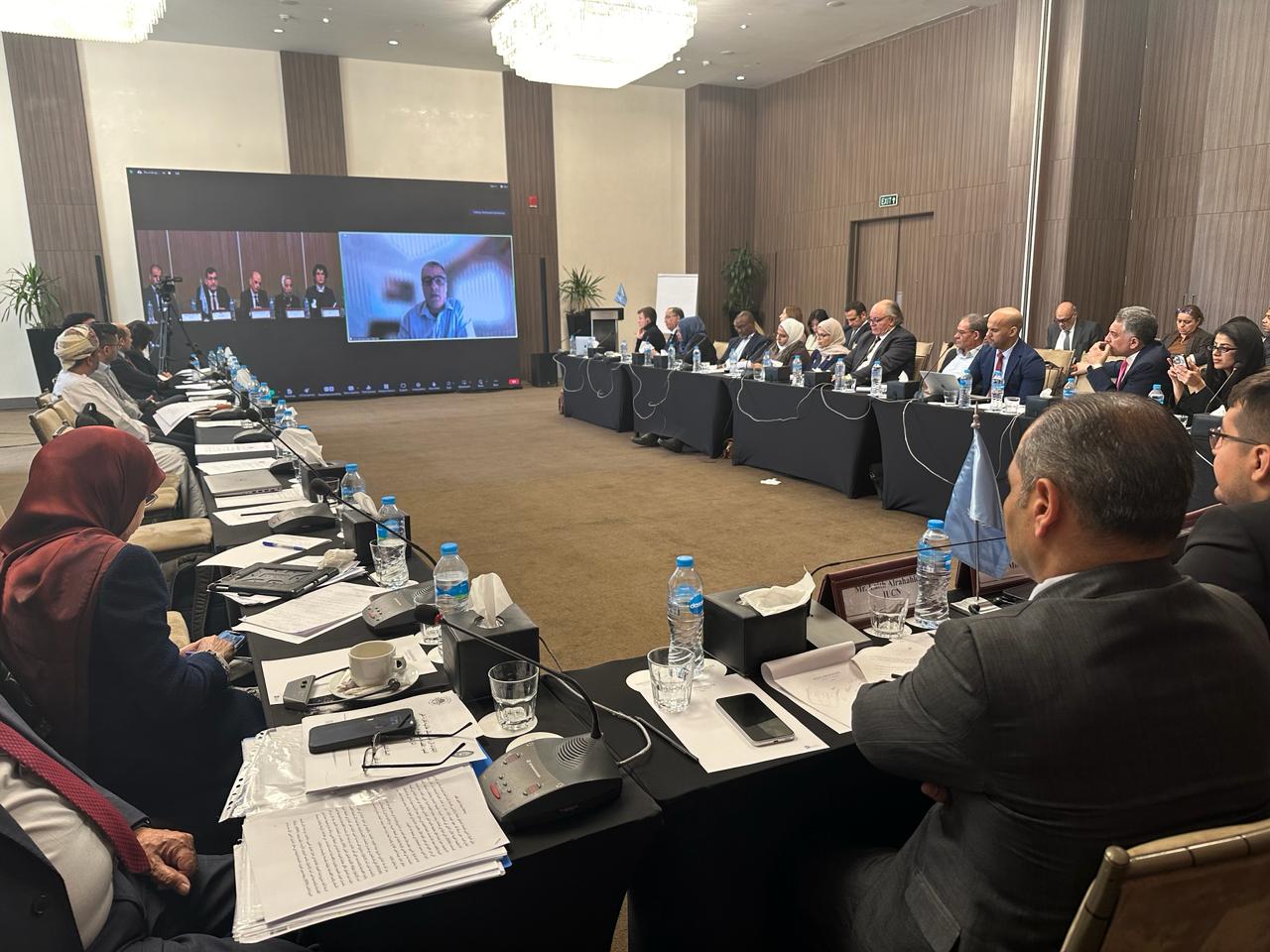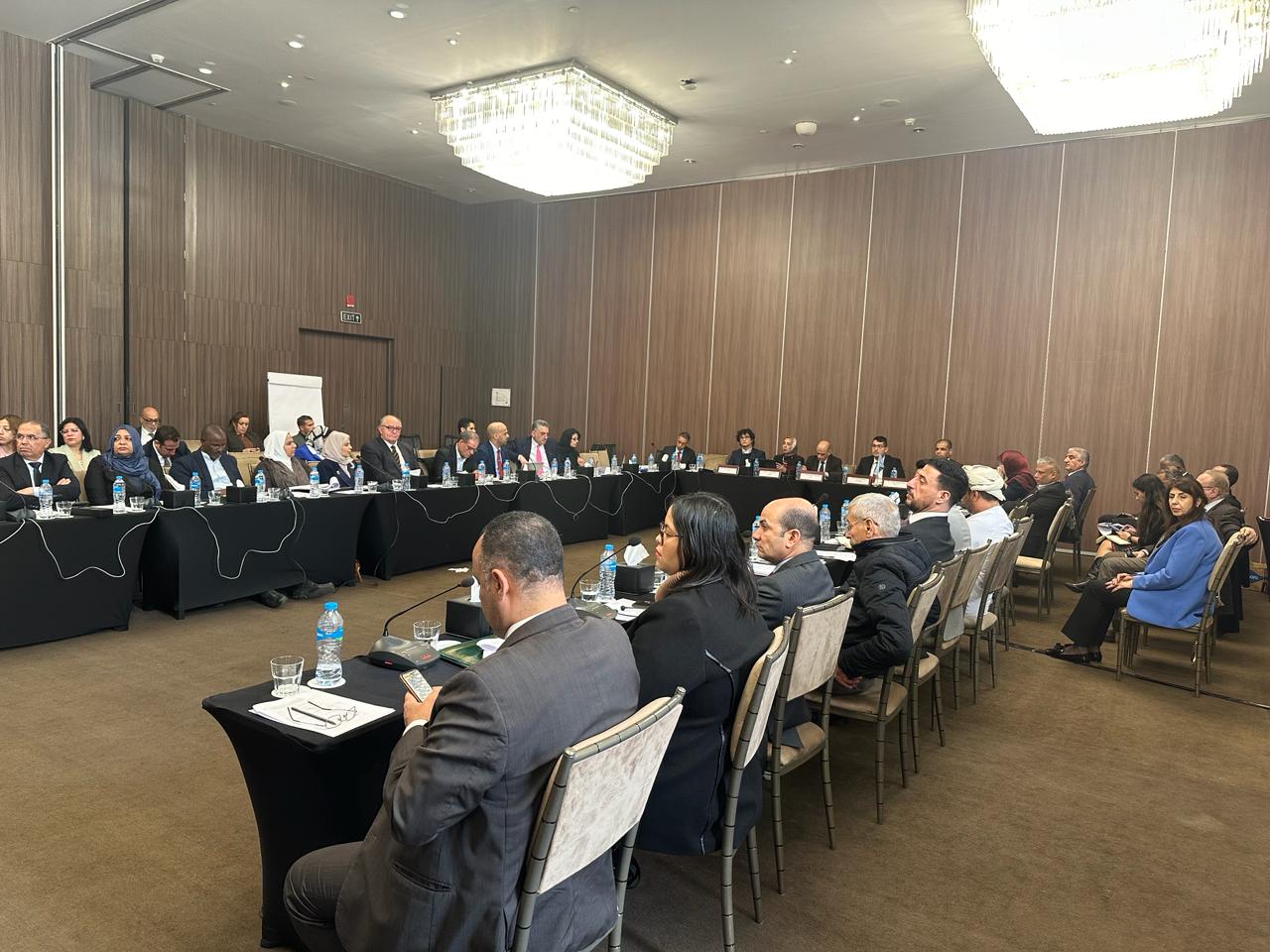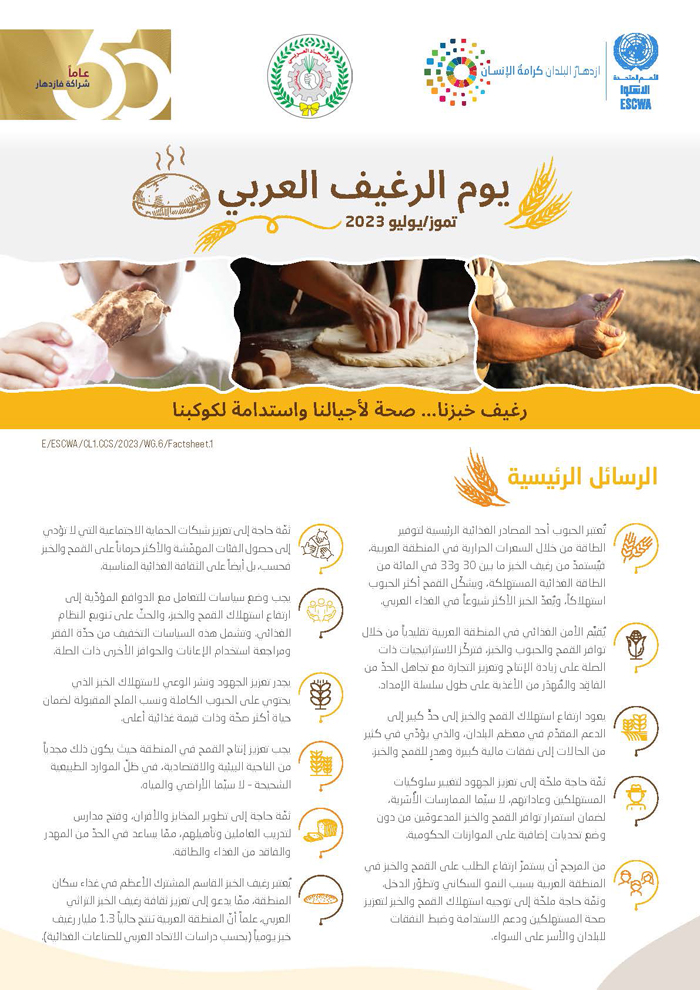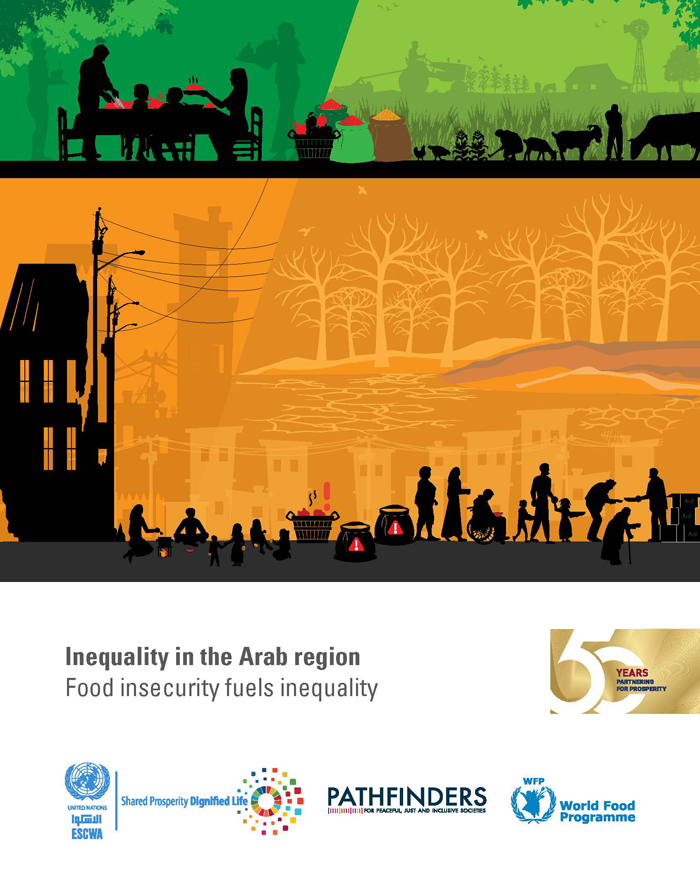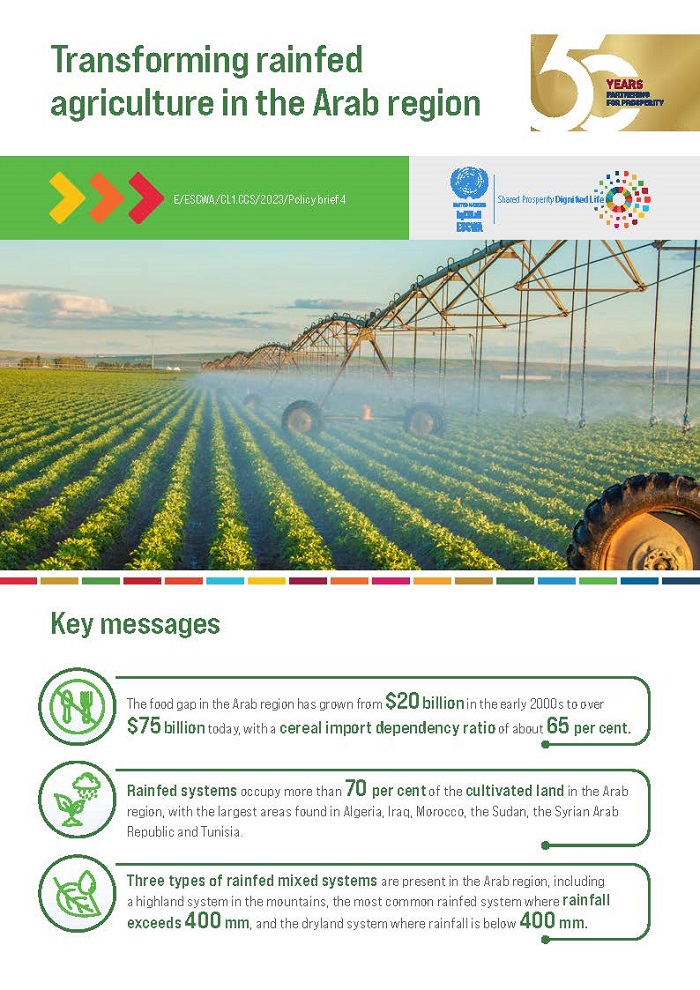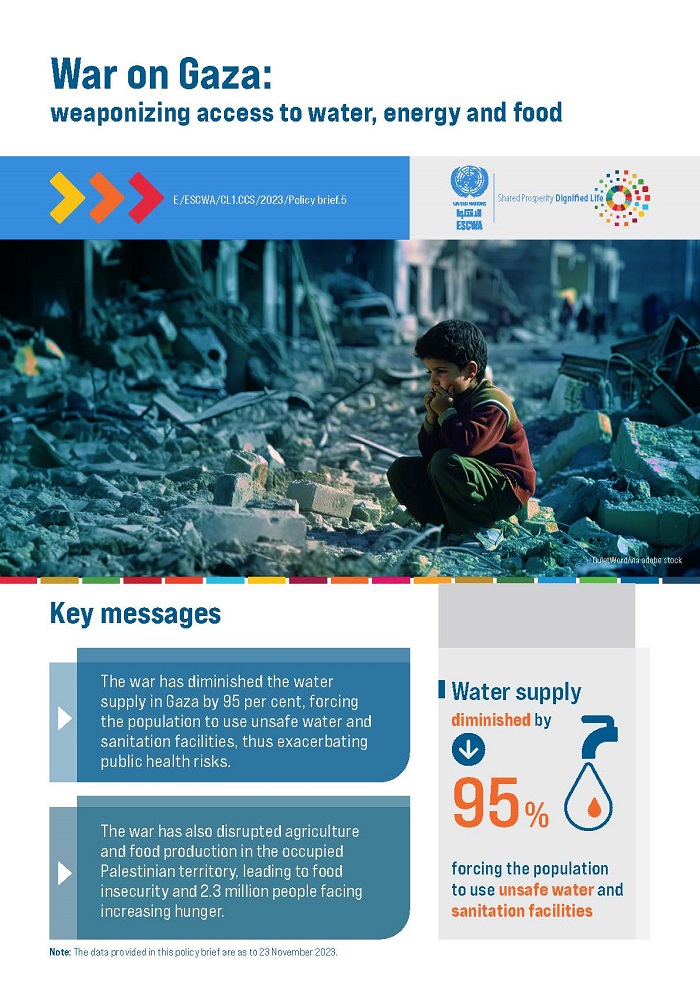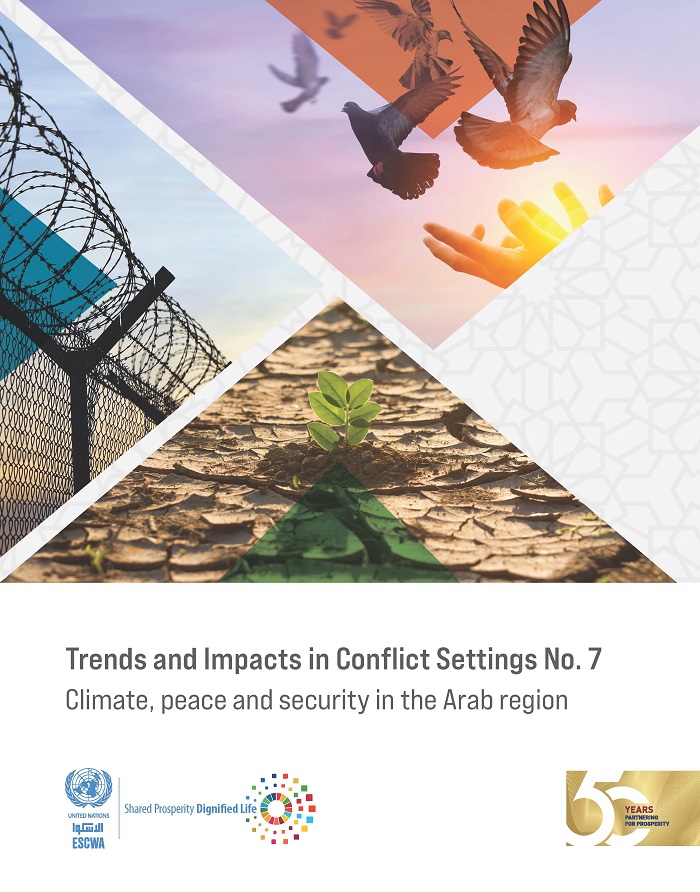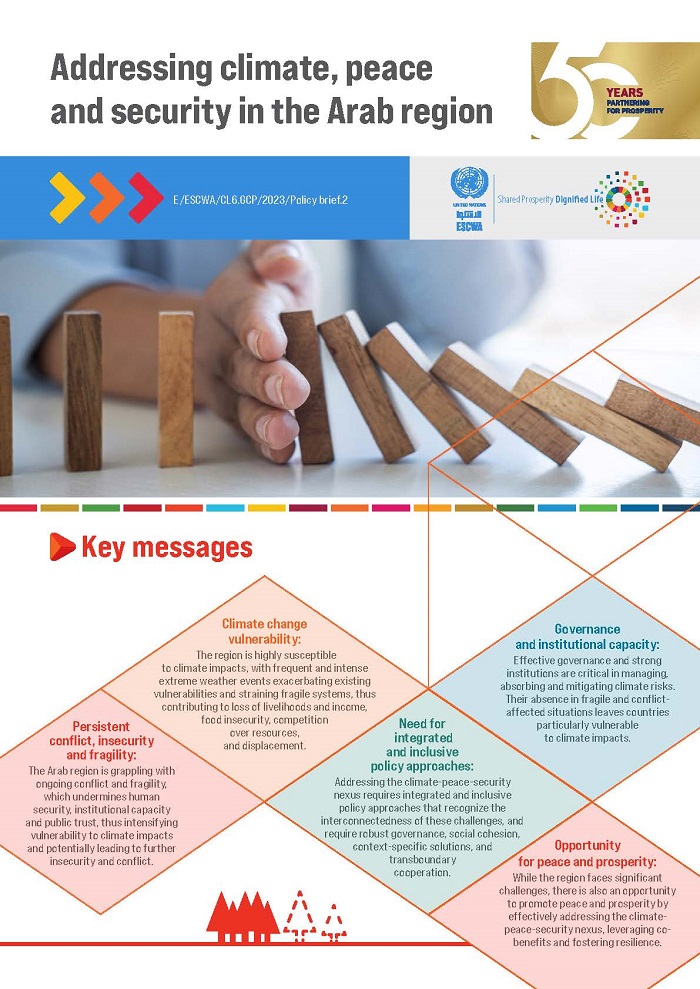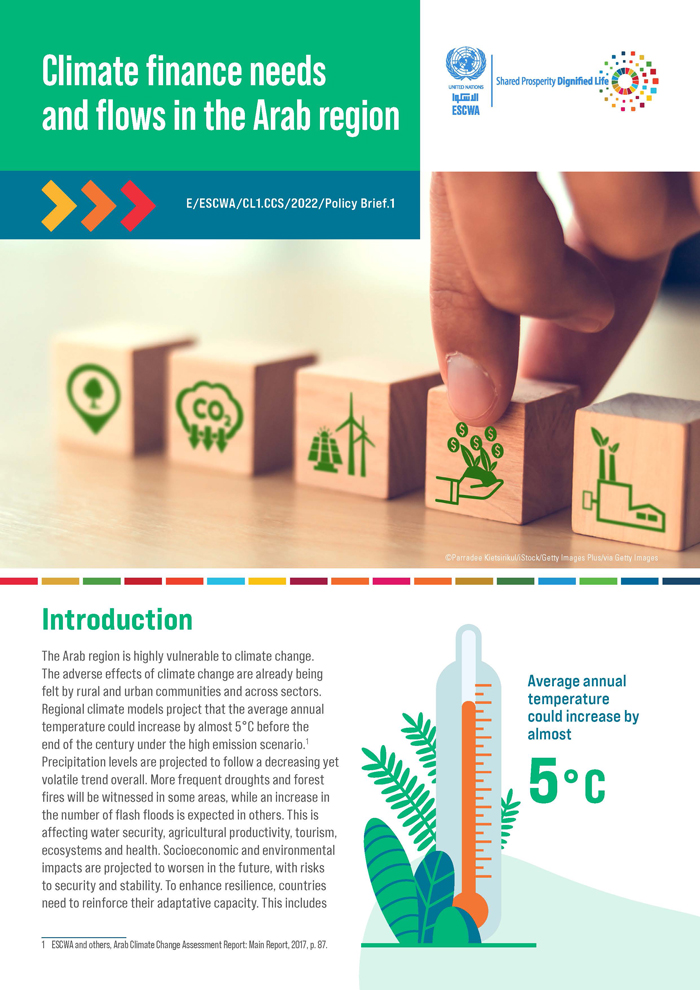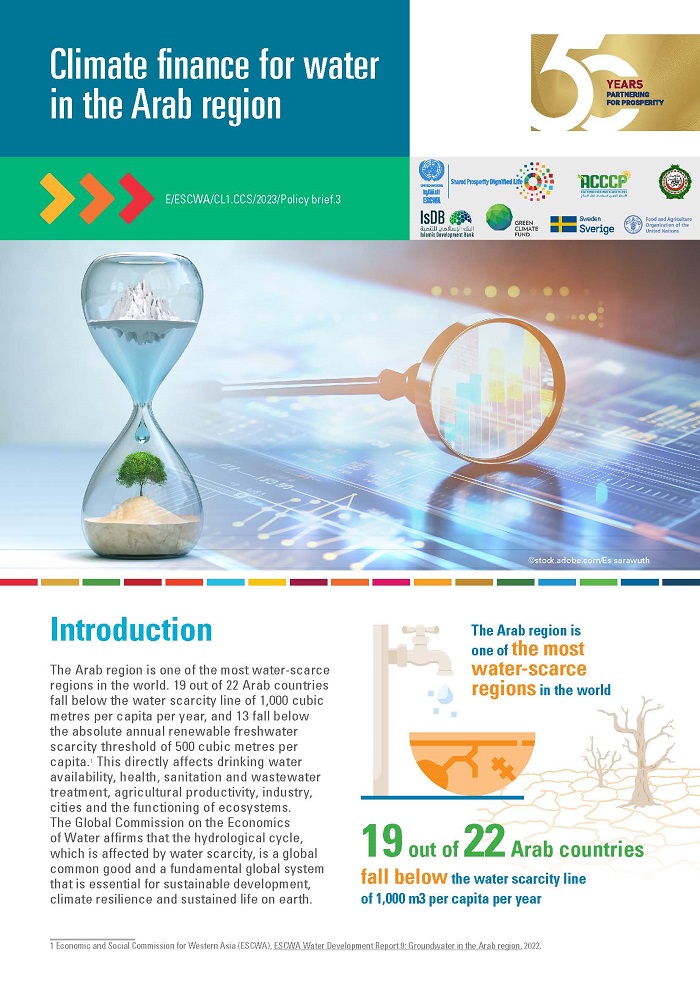In preparation for the Arab Forum for Sustainable Development 2024 (AFSD), ESCWA is organizing, in cooperation with the League of Arab States, a regional consultative meeting on the environmental dimension of the 2030 Agenda, with particular focus on the Sustainable Development Goals (SDGs) under review at the 2024 High-Level Political Forum, namely SDGs 1, 2, 13, 16 and 17.
The meeting, entitled “Reinforcing the environmental dimension of the 2030 Agenda for sustainability and peace in the Arab region”, is aimed at:
- Fostering discussions among stakeholders on sustainable, resilient and innovative solutions, building on regional and national initiatives and best practices;
- Exploring opportunities to scale up solutions for implementing SDGs 1, 2, 13, 16 and 17 within the context of conflicts and crises impacting the region;
- Discussing regional opportunities for strengthening synergies and integration between the SDGs and the Paris Agreement.
- Identifying priority actions and means of implementation to achieve the SDGs under review.
More information on SDG progress in the Arab region is available on the Arab SDG Monitor Portal.
